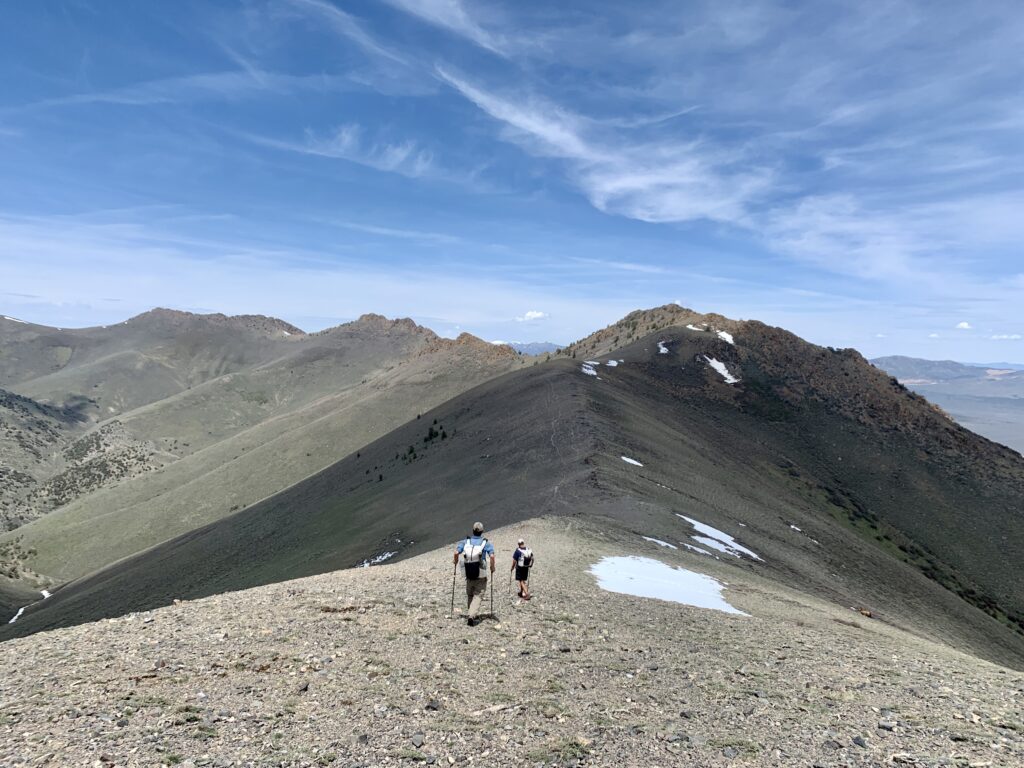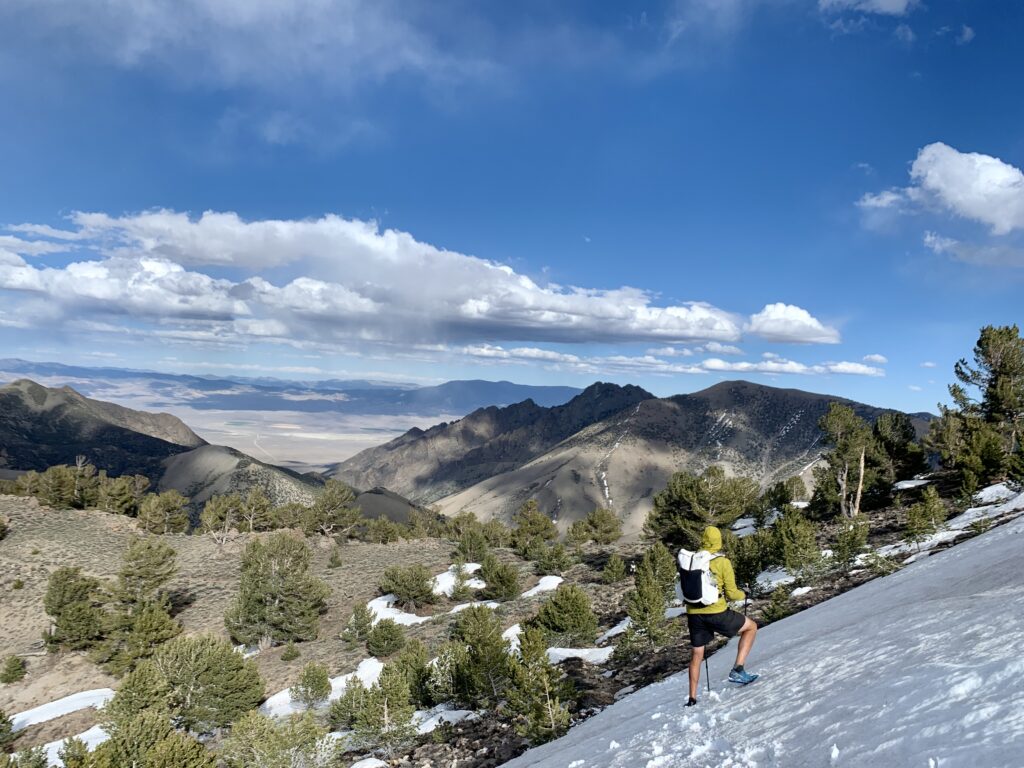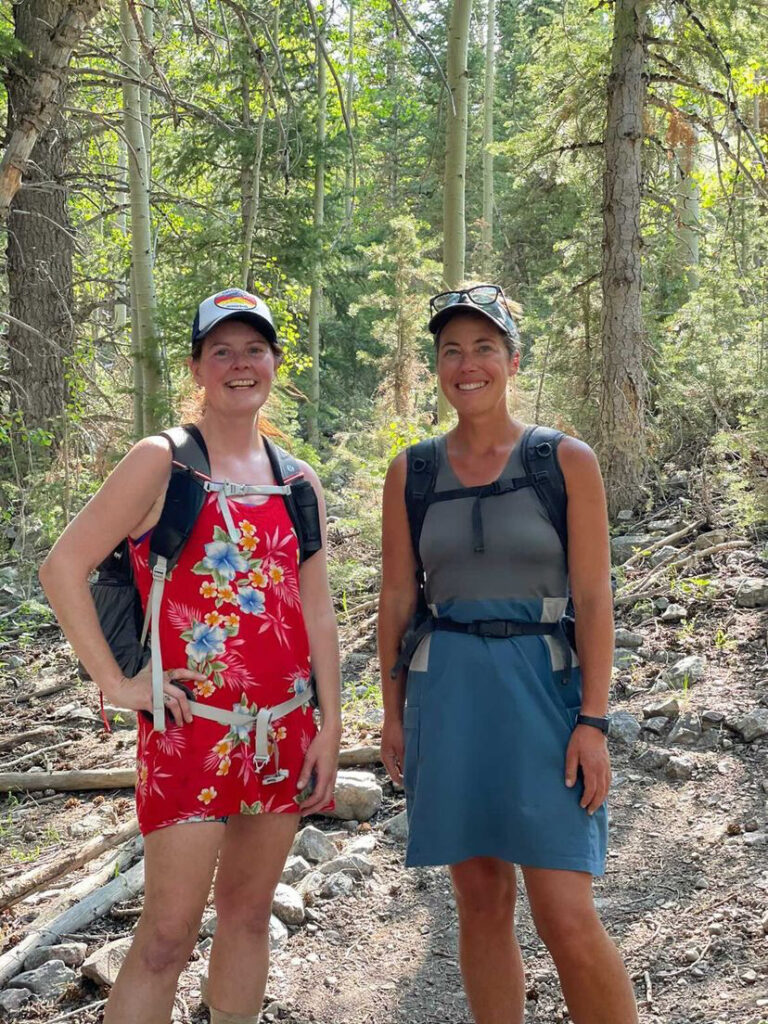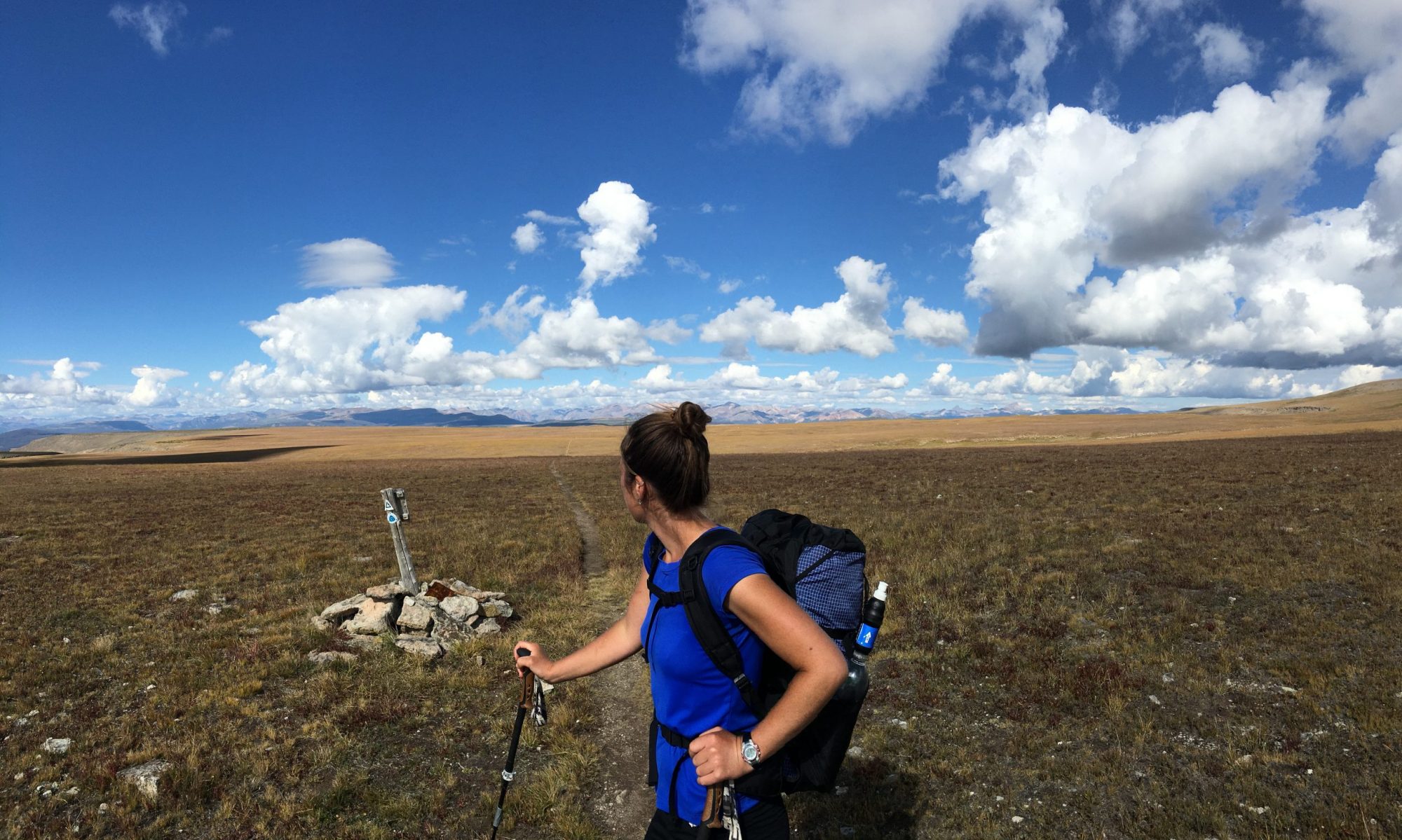An excerpt from Adventure Ready: A Hiker’s Guide to Planning, Training, and Resiliency by Katie Gerber and Heather Anderson
In preparation for my upcoming book launch on June 1, I want to share an excerpt from Adventure Ready: A Hiker’s Guide to Planning, Training, and Resiliency.
The following passage is from Chapter 8: Mental and Emotional Preparation. It was one of the most fun chapters for me to write because I love the “inner game” of long distance hiking (and endurance, in general). It’s also one of the topics we cover that sets our guidebook apart from others in the same genre.
If you’re preparing for your first (or second or third or…) long walk and you’d like to learn the process co-author Heather Anderson and I use to get ourselves mentally and physically ready for our backcountry adventures, order here to receive a copy signed by me.
Enjoy this sneak peak!
Adventure Ready excerpt:
“Strength does not come from physical capacity. It comes from an indomitable will.”
—Mahatma Gandhi
A long-distance hike—or any situation that puts you under pressure—will unearth dormant attributes and highlight both your strengths and weaknesses. Preparing your mind for a long backpacking trip before you step foot on trail goes a long way toward overcoming obstacles and achieving success with your backpacking goals. This mental preparation involves setting realistic expectations, having a rock-solid sense of purpose, and practicing specific techniques that prepare you to overcome psychological hurdles.

Strong Mind, Strong Body
I (Katie) had been hiking as fast as I possibly could for over four hours in an attempt to keep my body heat up in the freezing rain. I alternated between a hunched over, eyes-toward-the-ground posture and occasionally lifting my gaze to scan either side of the trail for suitable spots to pitch my tarp. I was worried, however, that if I stopped moving even for the seven minutes that it would take to set up shelter, my core body temperature might drop to a point from which it would be difficult to recover. My rain jacket and all my layers had soaked through hours prior, and I was chilled to the bone. I was also acutely aware that my hands were cold beyond the point of being functional. I couldn’t even grasp the draw cord to tighten my hood.
I could sense the panic beginning to well up in my chest. Nighttime was quickly approaching. What if the rain doesn’t let up? What if I can’t warm up to at least regain function in my hands so I can set up a shelter? I imagined myself walking through the night until I simply became too exhausted to go on and collapsed into a shivering pile on the ground. I hadn’t eaten in hours because my hands were too numb to open the nutrition bar stored in my hip pocket. I tore at it with my teeth and still couldn’t get to the bar. I wanted to cry. My mind fought to stay rational and focused. It was hard to remember that the day had begun with a leisurely walk around the rim of Crater Lake, snacking on trail mix while photographing Wizard Island, one of the most picturesque landmarks on the PCT.
Circumstances can shift quickly on trail. To say my morale was low in that moment is an understatement. Yet as miserable and fearful as I was, I still wasn’t thinking about quitting the trail (assuming I survived the day). I had mentally prepared for the PCT to be hard. I had imagined myself walking through day after day of cold rain as I had on previous long-distance hikes. I had visualized how I would keep walking toward Canada even in those moments when everything felt awful and the idea of hiking this trail seemed inane. Honestly, compared to what I had mentally prepared myself for, the PCT had been surprisingly pleasant up until that moment. Fortunately, the rain subsided just before nightfall. I was able to dry out, warm up, and regain function of my body. Slowly the panic melted away. After a night of rest, I continued my journey northward.
We know that the mind and body are inextricably linked. This is why elite performers like Navy SEALs and Olympic athletes train their minds as much as they train their muscles. The ability to accomplish impressive feats requires strength inside and out. This is as true on a long-distance hike as it is for any challenging physical endeavor. A resilient mindset is one of the most valuable pieces of gear you can carry and it doesn’t weigh an ounce.
The Psychology of Thru-Hiking Success
It’s commonly estimated that 75 to 85 percent of aspiring thru-hikers on the Triple Crown trails quit before reaching their goal. That’s a staggering number. So, what’s the difference between those who get to the opposite terminus and those who don’t? It’s generally not athletic ability. People of all different demographics and athletic abilities successfully complete long-distance trails.
Backpacking is not a particularly technical sport, though it does require you to learn a particular set of skills. The primary physical component involves walking over natural surfaces with a load on your back. And though good physical fitness reduces the likelihood of injury and can make the experience more enjoyable, a backpacker always has the option to slow down or reduce mileage to ease the physical demand. The challenges unique to a multi-month backpacking trip are exposing yourself to the elements day after day and continuing to move forward when you’re tired of sleeping on a thin foam pad, sick of eating dehydrated foods, and missing your family and friends. Thru-hiking success comes down to the ability to endure when things get hard. There are certainly legitimate circumstances that force hikers off trail, like illness, injury, and finances, but many quit because the going gets difficult and they don’t have a strong reason for being out there. They’re still physically capable, but mentally they’re over it.
“Thru-hiking success is 90 percent mental.” This is a common phrase among experienced hikers. I didn’t fully understand it until I was thirty days into my first long hike, which entailed putting on frozen shoes and soggy clothes each morning and walking through intermittent 40-degree rain. Many of my hiking companions were struggling, but surprisingly, I didn’t find it all that miserable. Not that I was loving every moment of it, but to some degree, I had expected the challenge.
My background of long-distance running provided a strong foundation for a resilient mindset many years before I discovered backpacking. During multi-hour cross-country runs in Ohio’s sweltering August afternoons, I learned that I could be uncomfortable and it wouldn’t kill me. Memories of those challenging twice-a-day practices were fodder I would later draw upon when my body was ready to give up and I needed to rely on my mind to persevere. Like many new backpackers, I went into my first long-distance hike believing that my gear, physical fitness, and backcountry skills were the factors that mattered most. I learned that those things are valuable, but they will not get you to the end of a multi-month journey without the mental mastery to also endure difficult circumstances. So if “thru-hiking success is 90 percent mental,” how does one cultivate the proper mental preparedness?

Setting Realistic Expectations
The foundation of mental preparation for a difficult endeavor is to set realistic expectations. Having a grounded understanding of what accomplishing your goal entails is essential to preventing you from being thrown off course when things get difficult, as they inevitably will.
Consider what makes the idea of a long-distance hike enticing to you. Perhaps it’s the stunning landscape vistas, being on your own schedule, and experiencing a deeper connection with yourself via immersion in nature. Whatever it is, it’s likely that those are the elements that are top of mind as you prepare for your hike. And while you’ll likely experience those rewards and more, it’s important to keep in mind the range of experiences and emotions you’re signing up for when you embark on a long-distance hike. At one end of the spectrum, you will have days where everything feels right—your body feels strong, you make new friends, and you discover your own strength as you hike through incredible landscapes. At the other end of the spectrum, you will have days where you walk through cold rain from sunrise to sunset, feet blistered, lonely, with only a packet of tuna to get you the remaining 50 miles to town.
Mentally preparing for optimal performance doesn’t mean you expect to be at your peak the entire time; it means that you set yourself up to do the best you can in whatever circumstances you encounter. Mental preparation begins with the expectation that your hike won’t all go smoothly. Whether you are able to endure depends on how you respond. Will you let an obstacle ruin your day (or your entire hike), or will you find your way through the situation, recover quickly, learn the lesson, and keep moving forward? Essentially, it’s expected that you will “fall off the horse.” How quickly can you get back on? This is largely influenced by your mental resilience. This section covers mental preparation techniques to enhance fortitude, but first, let’s explore potential challenges you might encounter—because expecting adversity is half the battle in overcoming it.
Excerpted from Adventure Ready: A Hiker’s Guide to Planning, Training, and Resiliency by Katie Gerber and Heather Anderson (June 2022) with permission from the publisher Mountaineers Books.
Order a signed copy here. In addition to mental preparation, we discuss trip planning, trail nutrition, physical preparation, safety, navigation, gear selection, and more.

